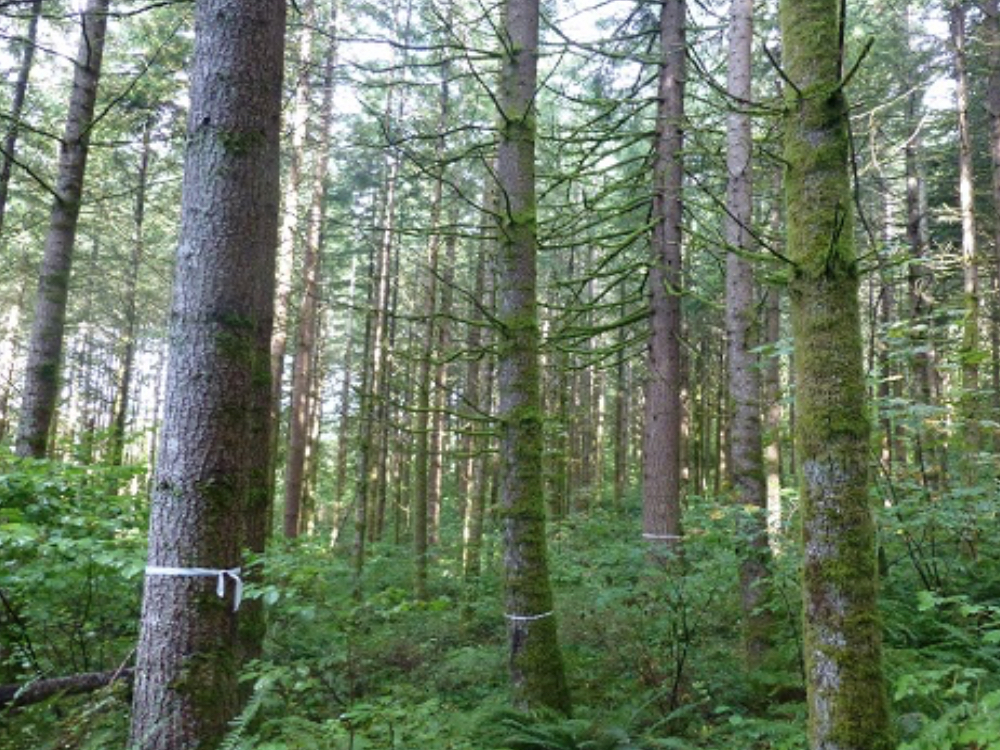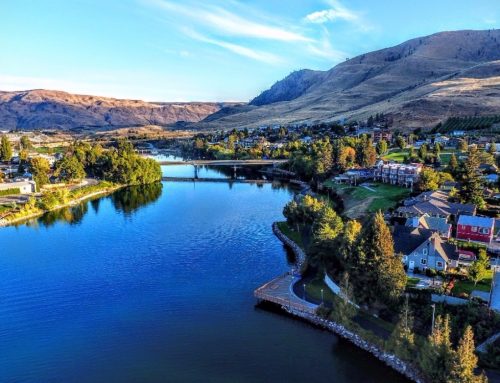New grant will look at feasibility of a forest products campus
information released by Chelan County
With western wildfires now burning bigger and hotter every year, heavily forested counties such as Chelan County are searching to find an answer on how to better build forest resilience.
Well-documented research has shown that forest resilience to wildfires can be enhanced by increasing the use of mechanical thinning of overcrowded young trees and prescribed fires, said Mike Kaputa, director of the Chelan County Natural Resources Department.
“There is also a broad consensus that new tools and technologies as well as policies and partnerships are needed to help build that resiliency,” Kaputa added.
Chelan County is exploring the building of a Forest Products Campus that will harvest timber from overburdened Central Washington forests and produce lumber products for market, in turn improving forest health and preventing wildfires.
Natural Resources Department has raised $532,000 in federal, county and private dollars to explore its forest products campus project. The U.S. Forest Service recently awarded the department a $266,000 Wood Innovations Grant. The county is providing $166,000 in matching dollars and Vaagen Timbers of Colville is providing $100,000 in matching contributions as well.
The project is one the county has been working on for several years but is now gaining serious momentum, with backing from Washington’s Commissioner of Public Lands Hillary Franz and U.S. legislators such as U.S. Rep. Kim Schrier of the 8th District, who last month spoke on behalf of the project to the U.S. Forest Service.
“One of the barriers to conducting large-scale forest health treatments in Central Washington has been the near total lack of mill infrastructure in the region,” said Rep. Schrier. “Public and private landowners must truck logs over 150 miles away to be processed, driving up costs that dramatically reduce revenue and disincentivize important wildfire mitigation and forest health projects. I have been impressed by the collaborative, community-driven effort to bring a forest products campus to Chelan County, and I am committed to helping make it happen. A forest products campus would benefit the entire region: producing material for cross-laminated timber, reducing housing prices, making forests more resilient to wildfire, and creating jobs.”
In the last 20 years, Chelan County has been impacted by 53 wildfires of 1,000 or more acres. With a land area of about 1.9 million acres, more than 80 percent of the land in Chelan County is owned by federal, state and local governments. The U.S. Forest Service is the largest landowner, owning 1.3 million acres. Much of that land is in the central and eastern parts of Chelan County and is categorized as having a high or very high risk of forest fires, according to Natural Resources.
Natural Resources has hired a team of consultants to develop a comprehensive design for an engineered sawmill, biomass and mass timber facility that would process small dimension logs thinned from the forest. The consultants will complete a wood supply assessment; site selection and business feasibility analysis; and a communications strategy to engage potential partners and investors in the project.
“This is a great example of a public/private partnership to address multiple community needs. The wood products campus will significantly improve our forest health by using the latest technology in harvesting forest products and creating innovative building materials,” said Chelan County Commissioner Bob Bugert. “This in turn, will help us address our county’s housing supply challenge by creating a local source of lumber products. And, as a bonus, the project will create a number of family-wage jobs in our county.”
At this time, there is much interest from the U.S. Forest Service in pursuing a timber facility in eastern Washington, Kaputa said. Local officials are counting on that to be in Chelan County.
“Climate scientists have predicted that these hot, dry summers we are experiencing are the new norm,” Bugert said. “But Chelan County, which is already developing an innovative climate resilience strategy, is uniquely positioned to play an important role in building healthier, more wildfire-resistant forests.”
“With the support we have behind this project and the ongoing analysis we are engaged in, Chelan County is in a position to successfully pursue a project like this better than anyone in the state,” Kaputa agreed. “Once it is up and running, our forest products campus could serve as a model for how other states in the west can build forest resiliency.”








